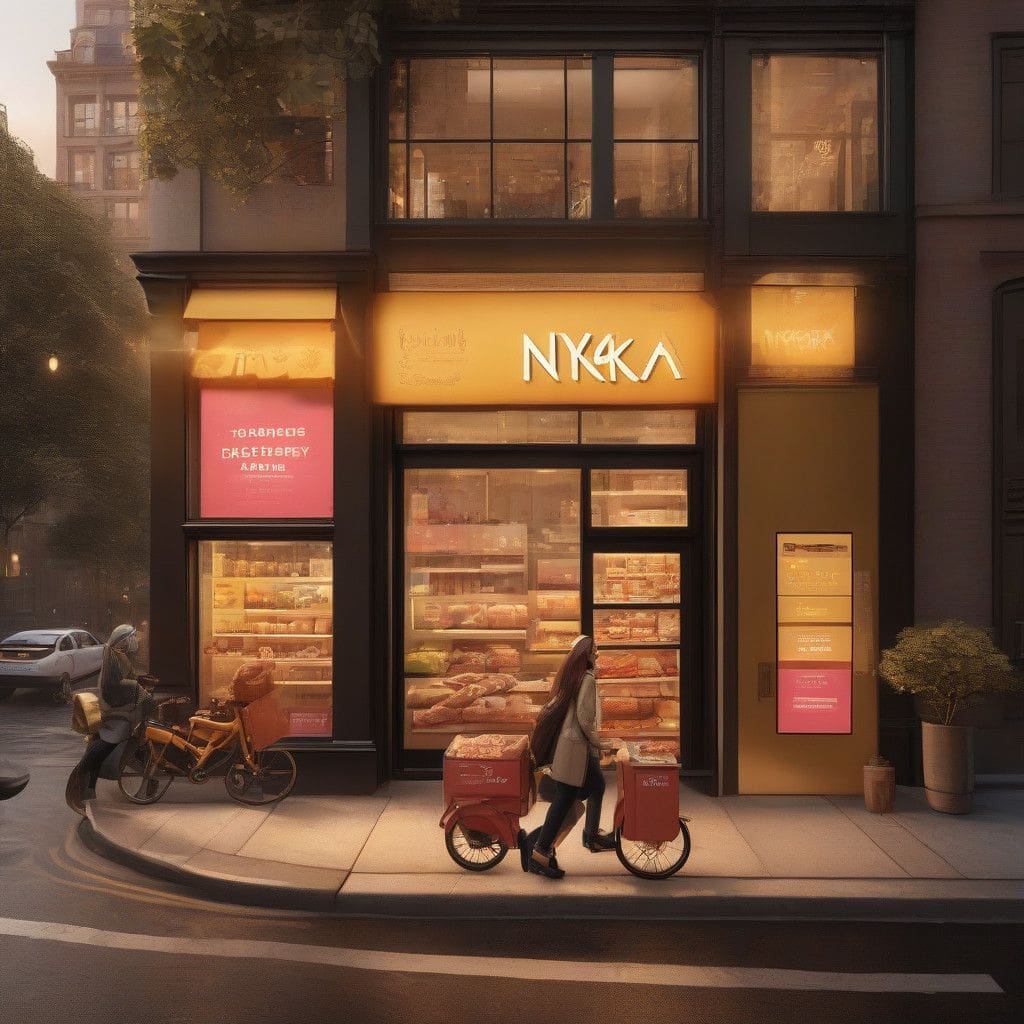In today’s fast-paced world, the expectation for instant gratification is shaping consumer behavior in significant ways. E-commerce players like Nykaa and Licious are stepping up to meet these demands, implementing rapid delivery services that promise to transform the shopping experience. This article unpacks the strategic moves these brands are making as they venture into the realm of quick commerce.
Nykaa, the prominent beauty retailer, has introduced a 10-minute delivery pilot in Borivali, Mumbai. This initiative comes at a time when the demand for rapid delivery is on the rise, particularly for beauty products, which have become one of the top-grossing categories on platforms that specialize in quick commerce such as Blinkit and Swiggy Instamart. Meanwhile, Licious, a direct-to-consumer meat brand, is pushing the boundaries of convenience by offering 15-minute delivery of ready-to-eat meals in certain areas of Gurgaon while still committing to a half-hour delivery for other locations.
The concept of quick commerce is rapidly gaining traction across multiple product categories, with Nykaa and Licious at the forefront of this evolution. As various brands attempt to meet the new consumer expectations, they are not merely competing against each other; they are also competing against the norms set by larger horizontal platforms. For instance, Myntra, a major player in the fashion e-commerce sector, is trialing four-hour delivery options in select Indian cities such as New Delhi and Bengaluru.
What drives this newfound necessity for speed in e-commerce is consumer behavior. A growing segment of shoppers is not willing to wait days for essential products. Nykaa recognizes this shift and plans to roll out its 10-minute service to more regions. The beauty retailer anticipates requiring a new brand name for this venture, which is likely to focus on low-priced items such as kajal pens, foundations, and daily-use skincare products.
Interestingly, while horizontal quick commerce platforms dominate grocery deliveries, a spot has emerged for vertical players to carve out markets with specialized offerings. The success of this model lies in establishing relationships with suppliers that allow them to deliver a broad range of stock-keeping units (SKUs).
The competitive landscape is evolving, evidenced by large horizontal retailers ramping up their quick commerce capabilities. For instance, Flipkart has recently launched its 10-minute delivery service, known as ‘Minutes’, targeting Bengaluru, Delhi-NCR, and Mumbai. At the same time, Amazon is testing its own Q-commerce offerings. Meanwhile, logistics companies like Delhivery, Shadowfax, and Ecom Express are entering the quick commerce arena.
For Nykaa, approximately 5% of its total SKUs are expected to be available through the quick commerce platform to start. Senior executives suggest that brands across various sectors are increasingly shifting towards same-day delivery in metropolitan areas, indicating a fundamental change in delivery expectations. Over recent months, Nykaa has noted that 10-15% of orders in the top four metro cities are delivered on the same day, while the majority of deliveries are fulfilled by the next day.
Reports indicate that the premium product segment is showing the fastest growth for Nykaa. According to a recent note from JP Morgan, the retailer aims to increase its same-day and next-day delivery rates to 65% and 60%, respectively, across its serviceable cities. This optimization would enable Nykaa to meet the exterior pressures of competitive delivery timelines without significant additional capital investment.
Mamaearth’s Varun Alagh recently highlighted that quick commerce sales had become the fastest-growing sub-segment in their online channel, contributing to over 10% of their overall revenue. This statistic further illustrates the rising significance of rapid delivery options across various categories.
Additionally, quick commerce fuels a trend towards premium offerings, as ATSL pointed out in a recent analysis. The competitive environment that quick commerce cultivates leads brands to explore higher margin categories in personal care, food, and other premium sectors.
The consumer landscape is uniquely positioned in India, where transaction frequency is substantially higher compared to Western markets. Research indicates that Indians frequently purchase small ticket items multiple times a week, diverging from the Western norm of bulk shopping once or twice a month. This distinctive shopping behavior underscores the increasing need for swift deliveries.
Aadit Palicha, co-founder of Zepto, articulated the essence of this trend during a recent discussion, emphasizing that the unique nature of Indian spending habits necessitates an adaptive approach to e-commerce fulfillment.
In conclusion, as brands like Nykaa and Licious pivot towards rapid delivery systems, they are not only responding to consumer demands but are also laying the foundation for the future of e-commerce in India. The quick commerce model presents a promising avenue, pushing businesses to rethink logistics, supplier relationships, and brand positioning in an increasingly competitive marketplace. As the landscape continues to shift, companies that can effectively combine convenience with consumer-centric strategies will likely find themselves leading the charge in the evolution of online retail.
